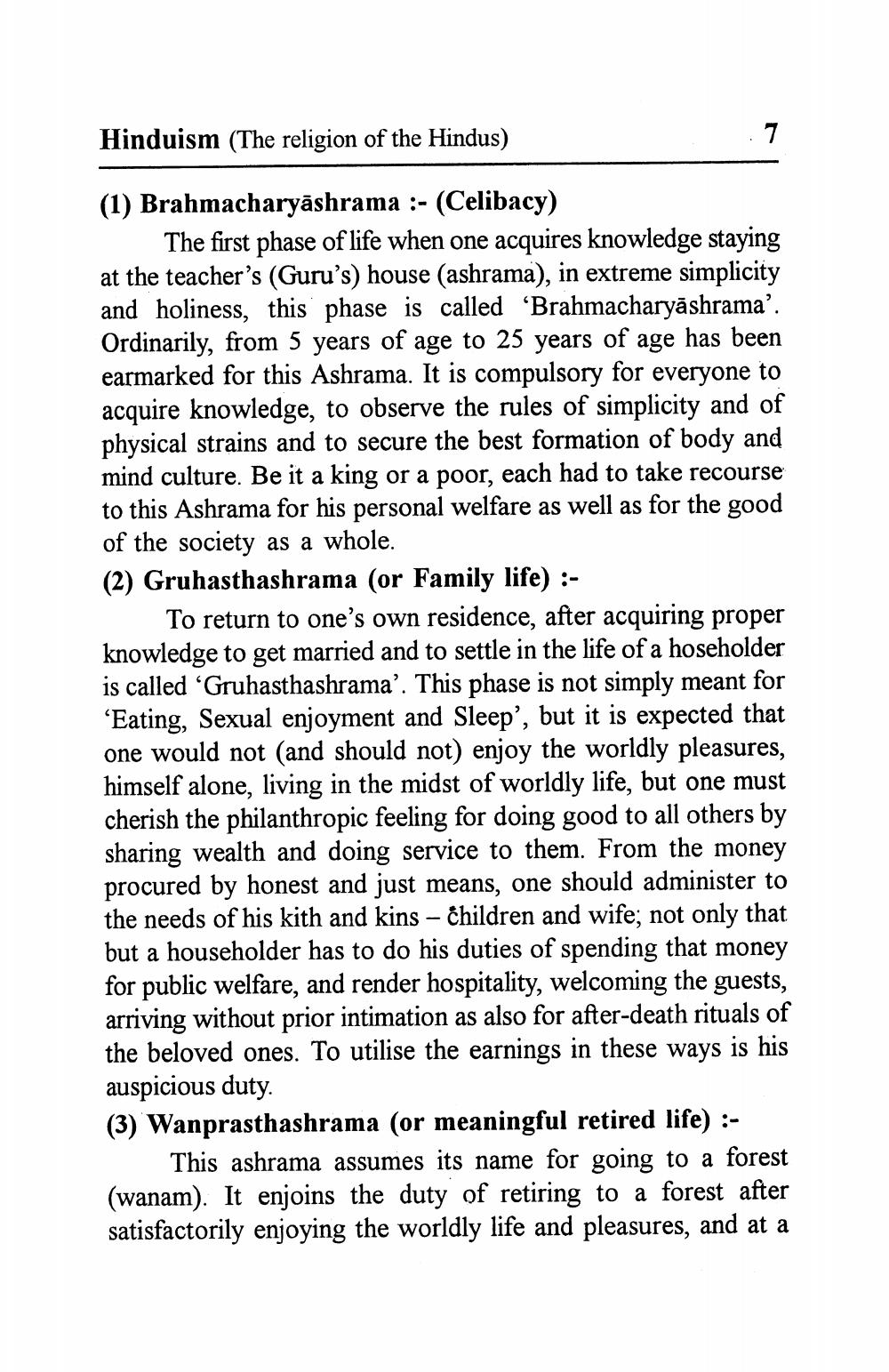________________
Hinduism (The religion of the Hindus)
(1) Brahmacharyāshrama :- (Celibacy)
The first phase of life when one acquires knowledge staying at the teacher's (Guru's) house (ashrama), in extreme simplicity and holiness, this phase is called 'Brahmacharyāshrama'. Ordinarily, from 5 years of age to 25 years of age has been earmarked for this Ashrama. It is compulsory for everyone to acquire knowledge, to observe the rules of simplicity and of physical strains and to secure the best formation of body and mind culture. Be it a king or a poor, each had to take recourse to this Ashrama for his personal welfare as well as for the good of the society as a whole. (2) Gruhasthashrama (or Family life) :
To return to one's own residence, after acquiring proper knowledge to get married and to settle in the life of a hoseholder is called "Gruhasthashrama'. This phase is not simply meant for ‘Eating, Sexual enjoyment and Sleep’, but it is expected that one would not (and should not) enjoy the worldly pleasures, himself alone, living in the midst of worldly life, but one must cherish the philanthropic feeling for doing good to all others by sharing wealth and doing service to them. From the money procured by honest and just means, one should administer to the needs of his kith and kins - children and wife; not only that but a householder has to do his duties of spending that money for public welfare, and render hospitality, welcoming the guests, arriving without prior intimation as also for after-death rituals of the beloved ones. To utilise the earnings in these ways is his auspicious duty. (3) Wanprasthashrama (or meaningful retired life) :
This ashrama assumes its name for going to a forest (wanam). It enjoins the duty of retiring to a forest after satisfactorily enjoying the worldly life and pleasures, and at a




